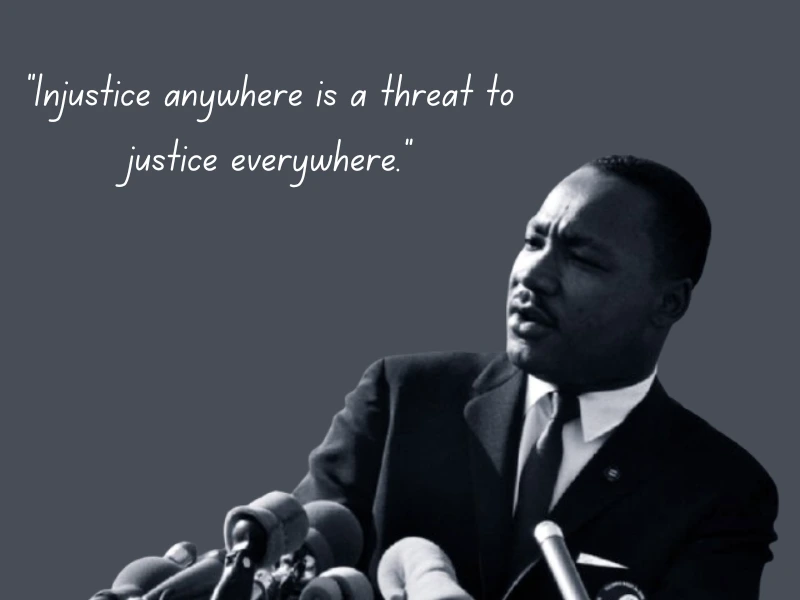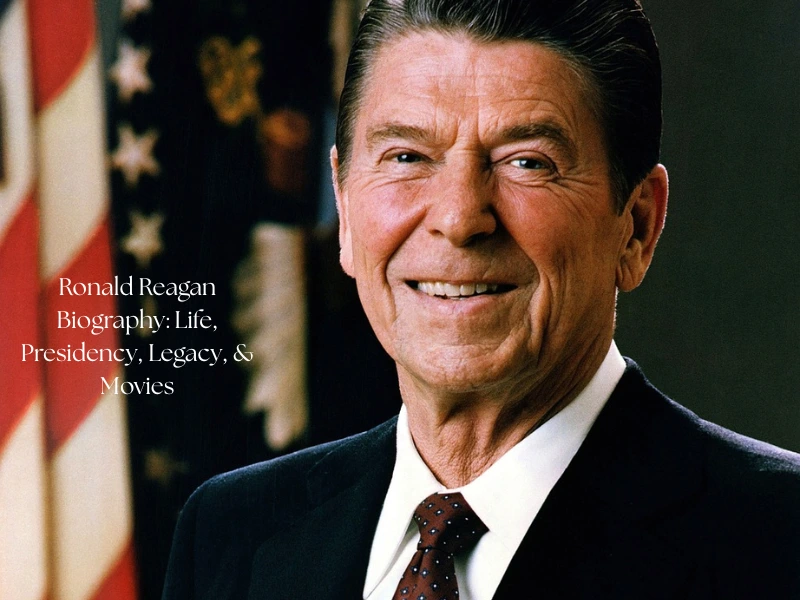Martin Luther King Jr. is one of the most influential figures in American history. He gave his life to justice, equality, and nonviolence. The United States civil rights landscape was altered due to his powerful speeches and endless activism, challenging systemic racism and inspiring millions of people to work for a better world. But what makes his story so alive even after he is no longer with us? Let’s dive into the life and legacy of this great leader.
Who Was Martin Luther King Jr.?
Born on January 15, 1929, in Atlanta, Georgia, Martin Luther King Jr. was raised in an America of bold racial segregation. Yet his parents’ firm faith and commitment to social justice strongly influenced him. The Baptist minister father instilled equality and nonviolence into him, forming the approach to activism later.
An exemplary student, he would graduate in sociology at Morehouse College, then would attend to study for his doctorate in theology at Boston University. That was where, as a student, he was influenced in his philosophy of non-violent resistance by the work of Mahatma Gandhi.
The Fight Against Racial Injustice
A strong advocate of the civil rights movement, Martin Luther King Jr. battled against racism in American society and worked against the country’s racial discrimination in order to dismantle these and eradicate racial segregation across America from the 1950s until the 1960s.
From activities including the Montgomery Bus Boycott and Birmingham Campaign, he showed that this was possible by organizing people and challenging the oppressive status of things. His efforts also came with risks since, at times, King received arrest, harassment, as well as death threats. Still, he remained strong in fulfilling the mission because of his notion towards a racially harmonious world.
The Role of Nonviolent Resistance
One of King’s most defining features is his unwavering belief in nonviolence. He drew inspiration from Gandhi, who used peaceful civil disobedience to fight British colonial rule. For King, nonviolence was not just a tactic but the way of life. Love and understanding could overcome hatred and oppression.
This philosophy was evident in much of his protests, from sitting at the lunch counters in the segregations to peaceful marches. Even when there was violence, he encouraged them to hold themselves with dignity and composure, showing the moral superiority of their cause.
Key Achievements of Martin Luther King Jr.
Martin Luther King Jr. played a pivotal role in several landmark events that changed the course of American history:
1. Montgomery Bus Boycott
After Rosa Parks’ arrest in 1955 for refusing to give up her bus seat to a white passenger, King organized a year-long boycott of the city’s buses. This movement led to a Supreme Court ruling that desegregated public buses.
2. March on Washington
In 1963, King led over 250,000 people to Washington, D.C., in one of the largest civil rights demonstrations. Here, he delivered his legendary “I Have a Dream” speech, which remains a cornerstone of American rhetoric.
3. Civil Rights Act and Voting Rights Act
King’s activism was instrumental in the passage of landmark legislation, including the Civil Rights Act of 1964 and the Voting Rights Act of 1965, which outlawed racial discrimination and removed barriers to voting for African Americans.
Martin Luther King Jr. and the March on Washington
The March on Washington for Jobs and Freedom stands out as a prime civil rights movement moment. Scheduled with demands for economic equality as well as social equality, this moment united diverse categories of people who shared in one unifying goal. Given by King from the steps of Lincoln Memorial, the speech was such an appealing call for justice and equal rights.
His words—“I have a dream that my four little children will one day live in a nation where they will not be judged by the color of their skin but by the content of their character”—continue to inspire hope and action.
The “I Have a Dream” Speech
The King’s “I Have a Dream” speech is one of the greatest speeches in the history of humanity. It had such poetic language and emotional depth, which is not common, that the message spoke to the universality of the civil rights movement. Imagining a world where races harmonize has challenged audiences to think of possibilities of justice.

Challenges and Criticism
Despite his great contributions, King faced much opposition. Many people thought that his nonviolent approach was too passive, while others accused him of being too radical. The FBI even monitored him, labeling him a threat to national security. However, King remained resolute, proving that standing up for justice often means enduring criticism.
His Assassination and the Aftermath
On April 4, 1968, Martin Luther King Jr. was sadly assassinated in Memphis, Tennessee, while supporting a sanitation workers’ strike. Death shocked the world, casting everyone into despair and waves of discontent across cities in the United States. King was only 39 years old, but his legacy was already monumental.
In the wake of his killing, the civil rights movement pressed on to fight for these causes that he espoused. His work opened doors and laid a foundation for following generations of activists and laid groundwork for further battles for equality and justice. Martin Luther King Jr. was a martyr to this cause, and his life remains a shining beacon of hope and strength.
Legacy of Martin Luther King Jr.
- Martin Luther King Jr. Day: This federal holiday, celebrated annually on the third Monday of January in the United States, honors his efforts towards civil rights and social justice.
- Global Influence: King’s work has inspired the worldwide movements for justice and equality.
- Enduring Messages: His speeches and writings are timeless, guiding as well as inspiring people in this struggle against oppression.
Also read Ronald Reagan Biography
MLK’s Relevance Today
Martin Luther King Jr.’s vision still holds good today, long after he had gone. The fight for racial equality is not over yet since issues such as systemic racism, police brutality, and economic disparities continue to exist. Activists today still draw inspiration from King’s approach, which includes peaceful protest together with calls for systemic change.
For instance, the Black Lives Matter movement resonates with much of what King preached about: justice sought through peaceful, organized action. His teachings remind us that achieving equality requires a measure of courage and compassion.
Inspirational Quotes by Martin Luther King Jr.
Here are some of Martin Luther King Jr.’s most powerful and timeless quotes:
- “Injustice anywhere is a threat to justice everywhere.”
- “The time is always right to do what is right.”
- “Darkness cannot drive out darkness; only light can do that. Hate cannot drive out hate; only love can do that.”
- “Faith is taking the first step even when you don’t see the whole staircase.”
- “Life’s most persistent and urgent question is, ‘What are you doing for others?'”
These words continue to inspire people across the world to fight for justice and equality.
Lessons We Can Learn from MLK
The Power of Nonviolence
The message that King’s approach gives us is that change can be effective without violence.
Courage in the Face of Adversity
His life teaches us the value of standing firm for one’s belief, even in the face of overwhelming adversity.
Unity and Cooperation
The ability of King to unite different groups shows how collective action can bring about social change.
The Value of Education
King believed in the revolutionary power of knowledge in fighting ignorance and prejudice.
Books Authored by Martin Luther King Jr.
1. Stride Toward Freedom: The Montgomery Story (1958)
This book chronicles the Montgomery Bus Boycott of 1955–1956, a pivotal event in the civil rights movement. King shares his experiences, strategies, and reflections, providing a firsthand account of the boycott that marked the beginning of his leadership.
2. Strength to Love (1963)
Strength to Love reveals the spiritual and philosophical thoughts of King. The book points out the strength of love and nonviolence when dealing with injustice and hate.
3. Why We Can’t Wait (1964)
This great work details the imperative civil rights movement of the 1960s by King. The book includes the famous “Letter from Birmingham Jail,” where King justifies the necessity for action against racial segregation now.
4. Where Do We Go from Here: Chaos or Community? (1967)
It gives the reflection of King on America’s future as it pertains to poverty, economic justice, and the continuing battle for racial equality. He also explains his vision about a united and just society.
5. The Trumpet of Conscience (1968)
The book was based on the series of lectures by King in 1967 as it discusses the war in Vietnam, poverty, and the moral crises that afflict the United States and the world at large.
Books About Martin Luther King Jr.
1. Bearing the Cross by David J. Garrow (1986)
This Pulitzer Prize-winning biography offers the comprehensive story of King’s life, struggles, and success. It is generally acclaimed as one of the richest accounts of his legacy.
2. Martin Luther King Jr.: A Life by Marshall Frady (2002)
It’s a short yet powerful biography on the life of King and how he influenced the civil rights movement.
3. Parting the Waters: America in the King Years, 1954-1963 by Taylor Branch (1988)
The first of the three volumes that Branch has penned on the civil rights, the book digs into the early years of King’s leadership and important milestones in the movement.
4. Let the Trumpet Sound: The Life of Martin Luther King, Jr. by Stephen B. Oates (1982)
This biography gives a clear narrative of King’s life, with personal and public battles.
5. The Autobiography of Martin Luther King, Jr. edited by Clayborne Carson (1998)
This book is compiled from the writings, speeches, and personal letters of King as an autobiographical account of his life, as curated by historian Clayborne Carson.
Conclusion
Martin Luther King Jr. was more than just a leader; he was a symbol of hope, courage, and perseverance. His dream of a just and equal society continues to inspire people worldwide. As we reflect on his life, let’s commit ourselves to the principles he stood for—justice, compassion, and unity.
King once said, “The arc of the moral universe is long, but it bends toward justice.” It is our responsibility to ensure that this arc continues to bend in the right direction.
FAQs
What is Martin Luther King, Jr. famous for?
Martin Luther King Jr. is famous for leading the civil rights movement in the United States, fighting for racial equality through nonviolent protests, and giving the classic “I Have a Dream” speech.
Did Gandhi and Martin Luther King meet?
No, Gandhi and Martin Luther King Jr. never met. Although King was very inspired by Gandhi’s philosophy of nonviolent resistance.
Did Martin Luther King win a Nobel Peace Prize?
Yes, Martin Luther King Jr. won the Nobel Peace Prize in 1964 for his leadership of the civil rights movement and commitment to nonviolence.
What happened to Martin Luther King, Jr.?
Martin Luther King Jr. was assassinated on April 4, 1968, while standing on the balcony of the Lorraine Motel in Memphis, Tennessee.




What’s Happening i’m new to this, I stumbled upon this I’ve discovered It absolutely helpful and it has aided me out loads. I am hoping to contribute & help different users like its helped me. Good job.
Very excellent information can be found on web blog. “We should be eternally vigilant against attempts to check the expression of opinions that we loathe.” by Oliver Wendell Holmes.